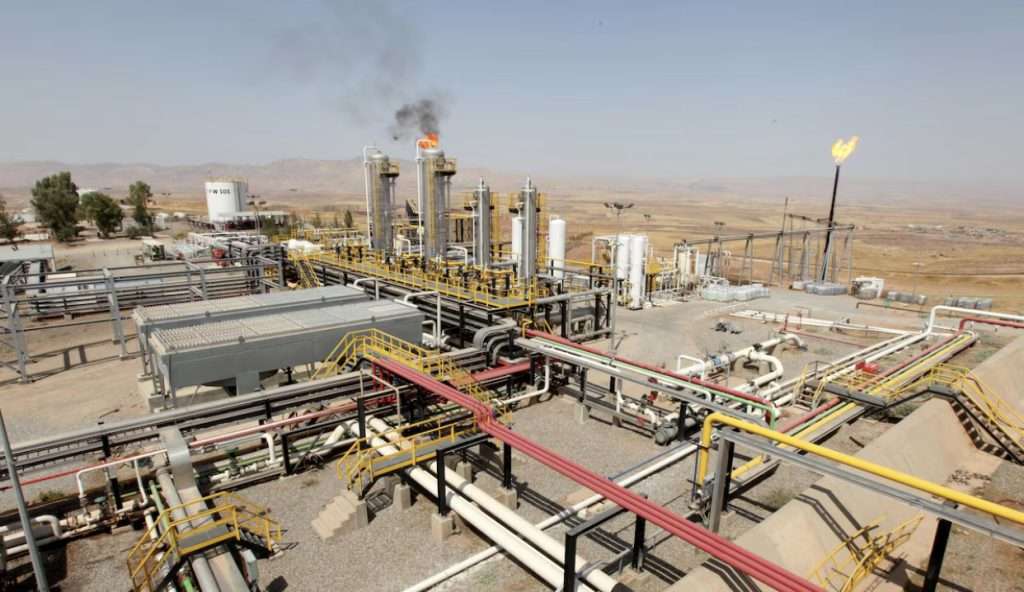Iraq inks deal with Kurds on oil exports and salaries

Iraq’s cabinet on July 17th struck a long-awaited crude oil deal with the semi-autonomous Kurdistan Region, which would restore their ties on oil exports and public sector salaries, according to The National via AFP.
This deal could reshape their tense relationship surrounding the exports and wages.
A statement released following a special session announced that the Kurdistan Regional Government will “immediately begin delivering all the crude oil produced from the region’s oilfields” to SOMO, the state oil marketer, for export.
In exchange, the statement noted, the Iraqi Ministry of Finance will be “committed” to compensating the Kurdish region at a rate of $16 per barrel- a price determined late last year during amendments to the federal budget and ratified by the cabinet.
The agreement specifies that Baghdad will receive no less than 230,000 barrels per day from the region’s total output of 280,000 barrels daily. The remaining 50,000 barrels will be kept for domestic use.
“Any further increase in production will be handed over to SOMO,” the statement said. As part of the initial phase of implementing the deal and as a sign of goodwill, the federal Ministry of Finance will disburse May salaries for public employees once it confirms the oil volumes have reached Turkey’s port of Ceyhan.
This step is intended to immediately assist tens of thousands of public sector workers in the Kurdish region who have endured months of uncertainty due to delayed wages.
The Kurdistan Region will also send an initial payment of 120 billion Iraqi dinars (around $91.6 million) for May, representing its share of non-oil revenues, as outlined in the agreement. A joint auditing team will oversee the revenue and determine the federal portion going forward.
Furthermore, the agreement calls for the implementation of a three-month plan to finish the process of disbursing public sector salaries via bank accounts.
Control over natural resource development has remained a deeply contentious issue since the 2003 U.S.-led invasion that ousted Saddam Hussein and granted the Kurds formal semi-autonomy.
Earlier in July, Kurdish officials claimed a drone strike was committed by the Iran-aligned Hashed al-Shaabi, now part of Iraq’s armed forces – a claim Baghdad denied. The incident comes amid ongoing tensions between Baghdad and the Kurdish region over oil revenues, worsened by the suspension of a key export pipeline to Turkey which has been in effect since 2023.
Kurdish authorities claim that they are permitted to strike independent deals, bypassing Baghdad, whereas federal leaders argue such moves are illegal. This dispute has led Baghdad to suspend budget transfers to Kurdistan at times, causing severe financial strain.
In early 2022, the Federal Supreme Court ruled that the regional law managing Kurdistan’s oil sector is unconstitutional. The court ordered the handover of all oil-related operations – including exports – to the federal government.
One year later, an arbitration ruling led to a halt in Kurdish oil exports via Turkey, cutting off a critical revenue stream for Erbil- the Kurdish region’s capital – and worsening its ability to pay salaries. During this period, negotiations between both sides failed to produce a resolution.
The National via AFP, Maghrebi.org
Want to chase the pulse of North Africa?
Subscribe to receive our FREE weekly PDF magazine













